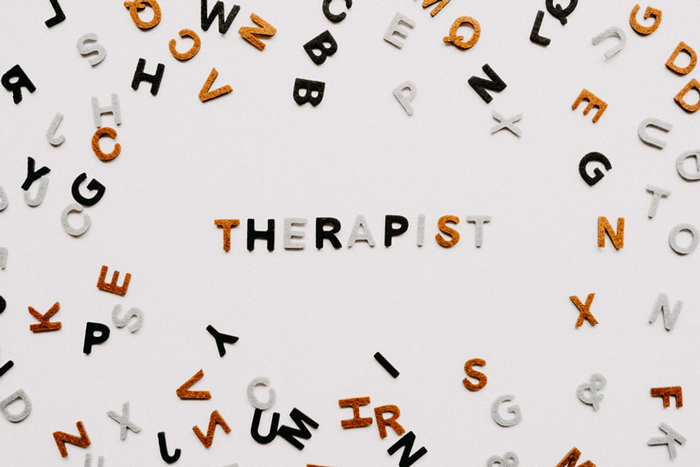Going to see a mental health specialist and consulting him or her about your problems may seem a weird proposition – and it certainly seems like it would be misconstrued by some of your friends and relatives. While you can discuss your concerns with them, seeking professional advice may be looked upon as shameful, a ridiculous notion, or as a sign of weakness. People will play it down – whereas, all things considered, therapy is not a social stigma but a great help in situations where any amount of discussing them with friends will be but a broken reed. A therapist can ease a lot of your issues from bad sleep to heavy depression. It could significantly alter your everyday performance – depending on how earnestly you yourself take to the treatment. Below are some reasons when a therapy consultation seems indicated.
Your family is concerned about you
We are not always the best judges of our condition. Working under stress we do not necessarily recognize how badly we are affected – or how negatively we affect those around us. If you keep receiving worrying messages from various angles, it could serve as a signal to check your real state of things with an expert.
Chronic stress, depression, or anxiety
You become aware that your stress has passed on to a chronic stage and there is no stopping it. You know that you can’t get out from under. While the flood of anxiety and depression is sweeping over you, you may be depleted of resources to fight it out unassisted.
You use drugs or alcohol to with problems
Once you have believed in the ability of substances or hard drinks (or even binge eating) to put you out of your life’s misfortunes, you may be well on the way to therapeutic consultancy. Such addictions can hardly be treated as your personal weaknesses.
By now the biological and psychological sides of addiction are well-explored so that efficacious treatment can be achieved to set people on a clean path again. Besides, the afflicted individuals can get a clearer picture of what is going on in their bodies and how it can be countered.

You are going through an important (and exhausting) event
There may be quite a lot of landmark life events that leave people utterly spent and could wreak havoc with a person’s mental state. Some of them are:
- death of somebody close to you
- un unexpected dismissal
- lengthy divorce procedure
- any event that proved to be traumatic
When you are in for a long spell of grief it is wearing down and you can be emotionally burdened to go through this phase alone. A therapist can help you sort out your feelings and come to terms with your losses.
Your relationship seems to grow unstuck
All kinds of relationships require working on. There may be undetected flaws in communication that can be dealt with during consultations; quarrels can be gotten to the root of behavioral patterns reinvented to make life with the partner smoother.
A relationship psychologist will reveal underlying causes of disputes, point out the most problematic issues as well as explain how misunderstandings may spring up.
You believe you are alone and abandoned
Those struggling with mental disabilities or disorders are apt to think their situation is unique. They can find great relief in group therapy where they can witness others with similar sufferings and relate to the therapeutic techniques that meet their cases.
In a group, the feeling that problems are understood and addressed is predominant so people relax and have the chance to open up which goes to ease up inner tension and the feeling of having been deserted.
You are mentally disturbed

Those who have been diagnosed with mental conditions need therapy even if they take medicine. Medicines alleviate symptoms but they fail to reach to the bottom of problems. Meanwhile undergoing therapy can help deal with black thoughts and beliefs overshadowing everyday life. They should be dissipated and made to fade away.
You are bothered with sudden mood swings
One of the worrying symptoms telling that your mental health needs care is when you start having permanent negative thoughts, become suspicious of good things, or begin to have misgivings. This shows that your mind is becoming sorely troubled. It could be an indication that you should get professional advice.
Concentration becomes difficult
Losing the power of concentration makes your day-to-day activities a lot more onerous – that is when a good therapist can be of help. They will analyze the condition and work out a personal approach that will assuage your troubles. Be ready to undertake inquiries into your mental state, though – it is important to check whether there is a previously undetected case of depression, ADD or some other disorder.
Inflicting self-harm comes to mind

Should you arrive at the point where you wish to do something harmful to yourself, it is when you stand in real need of assistance. Intentions to commit suicide or inflict bodily harm can be eliminated by qualified treatment.
You shy away from anything that you found enjoyable
Mental problems are often accompanied by low motivation. If you feel all of a sudden that you haven’t the heart to pursue your hobbies and interests, lost your social spark and sportive drive, it may be that you have graver problems that are reflected in de-motivation. While you may not be aware of them, a qualified therapist will help you understand what ails you.
You develop troubled sleep
Depressive bouts invariably lead to development of unhealthy sleeping habits – sleep becomes patchy or, on the contrary, you want to sleep more hours than usual. If it happens very quickly and affects your energy through the day, you should have it looked into. Therapy can also banish the worst of insomnia.
You have grounds to believe you may be developing a mental disability
Mental disorders of various severities take a yearly toll of around 10 million grown-up Americans. You cannot shake away the feelings of fatigue, dissatisfaction, unwillingness – try and do something about it. All these may be harbingers of worse conditions to follow. Tackle the issue and consult about a treatment for the unwelcome condition before it evolves into a serious issue that might derail you for a long time.











